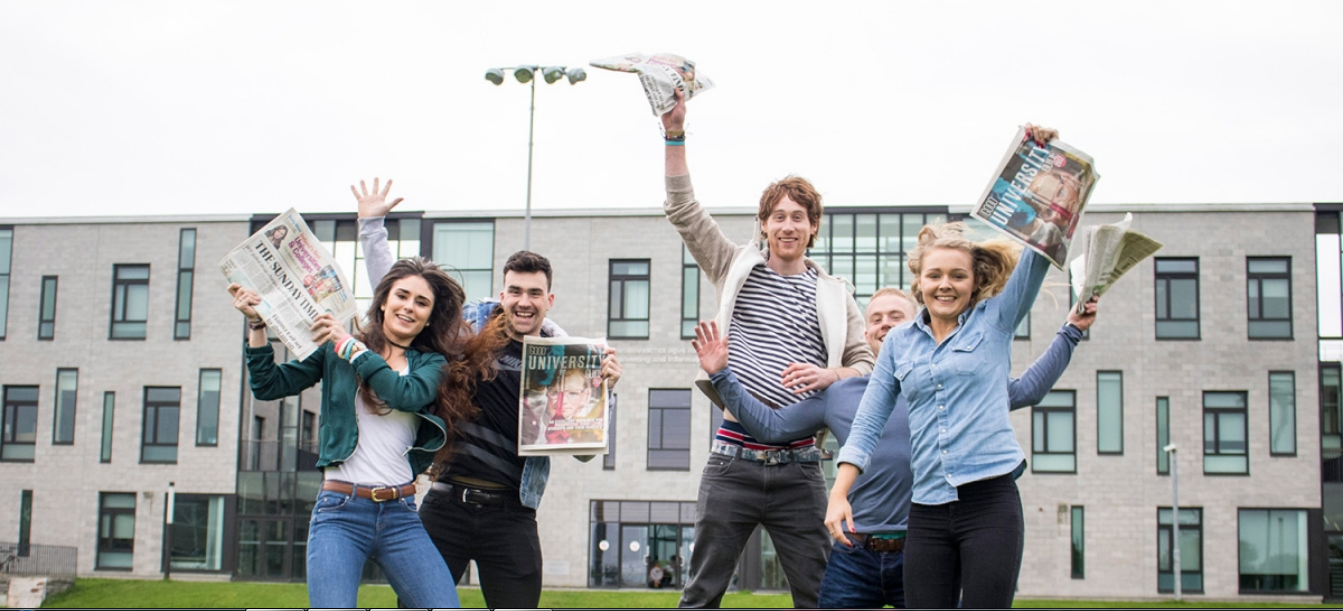Bachelor of Science Biotechnology
Why take this course?
Biotechnology explores biological systems (cells and organisms) to discover new ways to benefit mankind and the environment. Biotechnologists use their knowledge of biology to create products and processes within areas such as food, agriculture, the environment and medicine. The concept of biotechnology has been around for a long time; bread, alcohol and cheese making, for example, all involve microbial fermentation to make desirable products. However in the last 20 years, with the emergence of genetic engineering, genome mapping and a much better understanding of how DNA, RNA and proteins function together, biotechnology has revealed new and better approaches to solving many of the problems that face humanity. Biotechnologists have already discovered new ways to diagnose, treat and prevent disease, repair and replace damaged organs, create biofuels and bioplastics, grow crops with better yields, drought and pest resistance, and remove toxic environmental contaminants. Biotechnology is a dynamic and evolving area with many opportunities and challenges, which is making significant contributions to the ‘smart economy’ in areas such as healthcare, agri- business, the food industry and the environment. As a scientific discipline Biotechnology is a blend of Genetics, Microbiology, Molecular Biology, Biochemistry and Nanotechnology, with a strong component of Computer Technology - all of these disciplines are explored as part of this programme.
What will I experience?
The degree in biotechnology at AIT is designed to provide students with the necessary foundation of scientific knowledge, understanding and skill to build a career as a biotechnologist. The student experience will include the following:
- Lectures, tutorials and practical classes delivered in modern well-equipped teaching rooms and laboratories.
- Highly qualified lecturers with a broad range of research, teaching and industrial experience.
- A comprehensive hands-on training in basic and advanced laboratory skills, and in the operation of scientific equipment.
- Opportunities to develop soft skills in oral and written communication, teamwork, problem solving, time and project management, numeracy skills and computer literacy
What opportunities might it lead to?
Further Studies:
Graduates of the Level 7 programme AL730 can progress to the Level 8 programme AL838.
Level 8 graduates can thereafter progress to postgraduate studies including Level 9 Master’s degree (taught or by research), Level 10 PhD degree or Higher Diploma in Education (2nd level teaching - science and biology).
Employment:
Typical areas of employment include biopharmaceutical and medical technology industries, research organisations (academic and industrial), food and drinks manufacturing. Roles for biotechnology graduates include quality assurance and quality control technician, manufacturing technologist, biochemist, analytical scientist, microbiologist and process engineer.
Intakes
- Jan
- Sep
Application Processing Time in Days: 20
Minimum English Language Requirements
| English Level Description | IELTS (1.0 -9.0) | TOEFL IBT (0-120) | TOEFL CBT (0-300) | PTE (10-90) | |
|---|---|---|---|---|---|
| Expert | 9 | 120 | 297-300 | 86-90 | |
| Very Good | 8.5 | 115-119 | 280-293 | 83-86 | |
| Very Good | 8 | 110-114 | 270-280 | 79-83 | |
| Good | 7.5 | 102-109 | 253-267 | 73-79 | |
| Good | 7 | 94-101 | 240-253 | 65-73 | |
| Competent | 6.5 | 79-93 | 213-233 | 58-65 | |
| Competent | 6 | 60-78 | 170-210 | 50-58 | |
| Modest | 5.5 | 46-59 | 133-210 | 43-50 | |
| Modest | 5 | 35-45 | 107-133 | 36-43 | |
| Limited | 4 | 32-34 | 97-103 | 30-36 | |
| Extremely Limited | < 4 | < 31 | < 93 | < 30 |
Job Opportunity Potential
The Careers Office is focused on helping you reach your full potential through personal development, academic progression and preparing for your next steps once you graduate. While you are at AIT, we encourage you to make the most of your time and embrace all aspects of college life.
The Careers office offers the following:
Career advice and coaching
Help with compiling CVs and cover letters
Interview techniques and ‘mock’ interviews
Advice for students thinking of leaving their course
Employer recruitment programmes
Career Bootcamp series and Annual Careers & Further Study Fair
Job opportunities
Employer presentations and interviews
Postgraduate and further study opportunities
Scholarships and Internships
Summer work
Travelling and working abroad
Admission Requirement / Eligibility Criteria
Application Procedures for Non-EU Students
Students applying for entry to undergraduate or postgraduate programmes should supply the following information directly to the International Office, Technological University of the Shannon: Midlands Midwest on or before 1 May for programmes commencing in September:
Completed TUS application form;
Detailed curriculum vitae;
Certified transcripts of examination results and English language translations of qualifications not issued in English
Evidence of ability to follow classes in the English language (which must satisfy Institute entry requirements for the following programmes)
Foundation level programme: Certificate in English for Academic Studies: Minimum IELTS 4.5 or equivalent.
Pre-sessional Summer programme in English June to August: Minimum IELTS 5.0 or equivalent.
Undergraduate programmes: Minimum IELTS 5.5 with no Band less than 5.0.
Postgraduate programmes: Minimum IELTS 6.0 with no Band less than 5.5 *
*note some postgraduate programmes require minimum IELTS 6.5.
- Course Code: US731
- Course Type: Full Time
- Course Level: Bachelors/UG Degree
- Duration: 03 Year
-
Total Tuition Fee:
37500 EUR
Annual Cost of Living: 10500 EUR
Application Fee: N/A
Similar Programs
- BSc in Pharmaceutical Sciences (Drug Development and Analysis) at Athlone Institute of Technology (AIT)
- BSc in Biotechnology at Athlone Institute of Technology (AIT)
- Bachelor of Science (Honours) Software Design in Artificial Intelligence for Cloud Computing at Athlone Institute of Technology (AIT)
- BSc(Hons) in Biotechnology at Athlone Institute of Technology (AIT)
- Bachelor of Science (Honours) BSc(Hons) in Pharmacology at Athlone Institute of Technology (AIT)
- Bachelor of Science (Honours) Mental Health Nursing at Athlone Institute of Technology (AIT)

